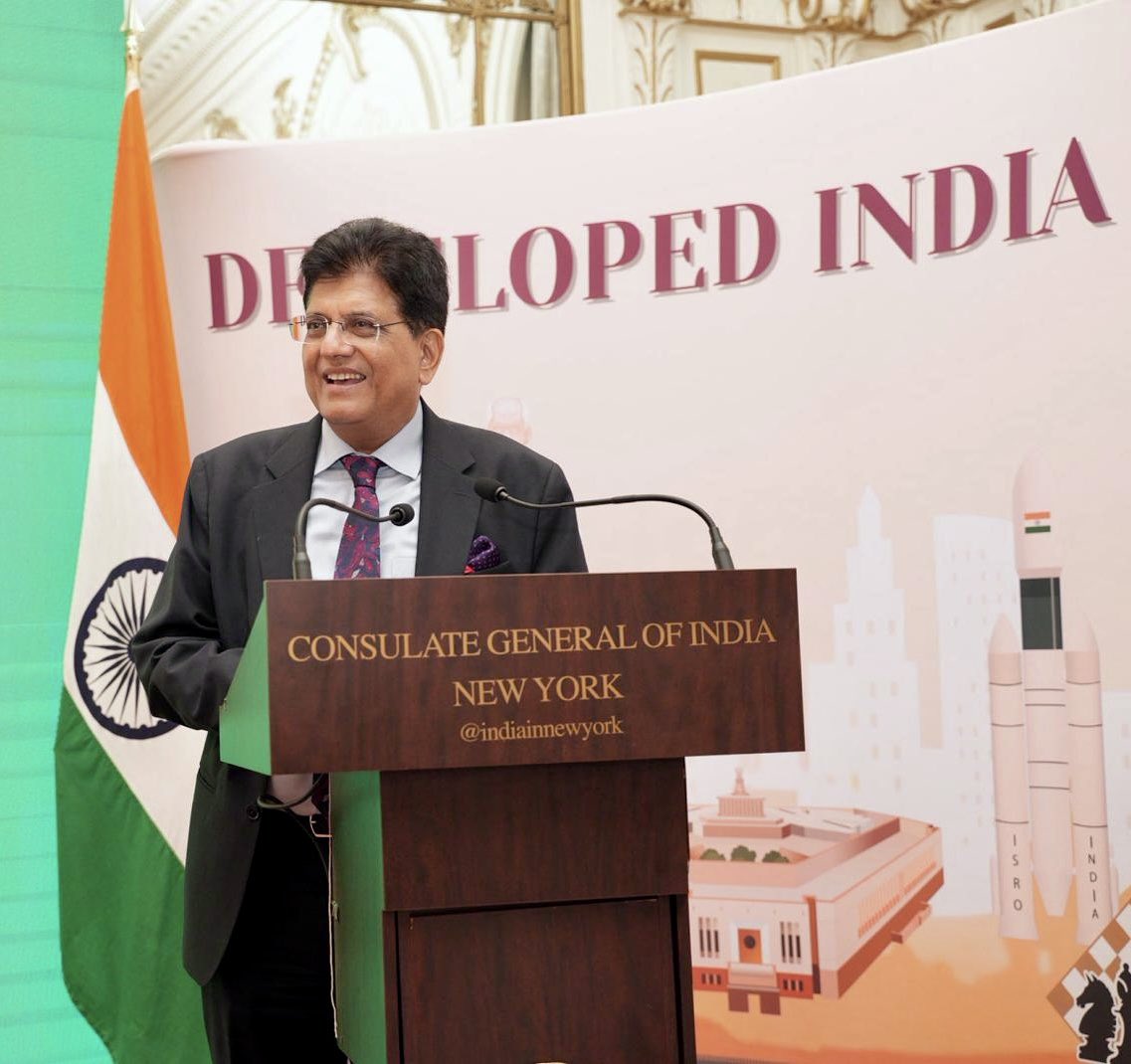
A delegation led by Commerce and Industries Minister Piyush Goyal visited the United States of America from September 22 to September 24, where they held discussions with businesses and investors on promoting trade and investment between the two nations.
According to the statement issued by the Indian government, the two countries discussed ways to reach an early conclusion to the trade deal.
During the visit, Goyal had meetings with Ambassador Jamieson Greer, United States Trade Representative, and Sergio Gor, US Ambassador-designate to India.
“The delegation had constructive meetings with the US Government on various aspects of the deal. Both sides exchanged views on possible contours of the deal and it was decided to continue the engagements with a view to achieve early conclusion of a mutually beneficial Trade Agreement,” read a statement issued by the Indian government.
The Indian government statement said the meetings with businesses and investors evoked a positive response.
“The business leaders reposed confidence in the India growth story and expressed their desire to intensify their business activities in India,” the statement said.
Meanwhile, US President Donald Trump on Thursday announced plans to impose tariff of up to 100 percent on branded and patented pharmaceutical imports from October 1, a move likely to hit Indian drugmakers.
In a post on Truth Social, Trump said: “Starting October 1st, 2025, we will be imposing a 100 percent tariff on any branded or patented pharmaceutical product, unless a company is building its pharmaceutical manufacturing plant in America.”
He clarified that “IS BUILDING” would mean “breaking ground and/or under construction.” Products would be exempt if domestic production had begun, he added.
Trump also unveiled new duties of 50 percent on kitchen cabinets and bathroom vanities, 30 percent on upholstered furniture, and 25 percent on heavy trucks, citing what he described as a “large-scale flooding” of imports.
The latest measures could deal a major blow to India’s pharmaceutical industry, which had largely escaped earlier tariff rounds, Forbes India reported. The United States remains a critical market for Indian companies, which supply more than 45 percent of generic drugs and about 15 percent of biosimilars used there.
Trade ties between Washington and New Delhi have already been strained after Trump’s administration imposed 50 percent tariffs on a range of Indian exports.


